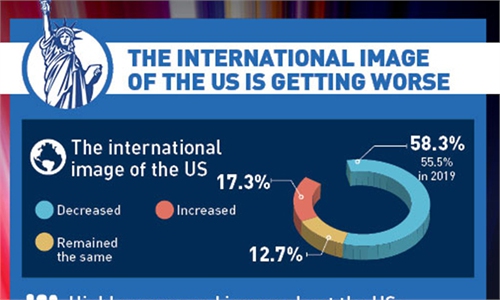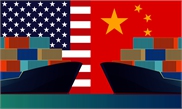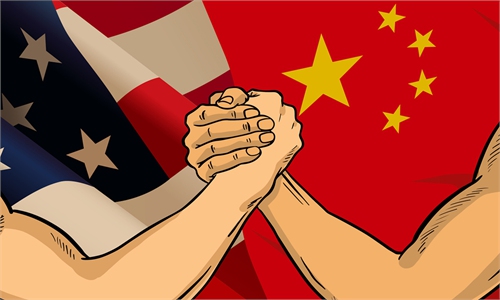Adjustments needed
Cold War mind-set will not work in post-COVID-19 world: experts
Recently a series of opinion articles published by Bloomberg in late February, arguing that Germany, the Philippines, India, and Djibouti may decide the US-China Cold War. However, experts from various countries told the Global Times that the five articles have been focusing on a US-China competition, analyzing the differences between the new Cold War between China and the US and the competition between major powers in the past. The West has two options: It can regard China's advancement as a chance for a complete restructuring of the world economy, environmental policy, and for the building-up of collective security structures - or it can start a new Cold War, making conflicts, economic sanctions, military threats and ideological struggles the central axis of its politics.
The competition between China and the US is everywhere, and the pivotal countries are distributed all over the world.
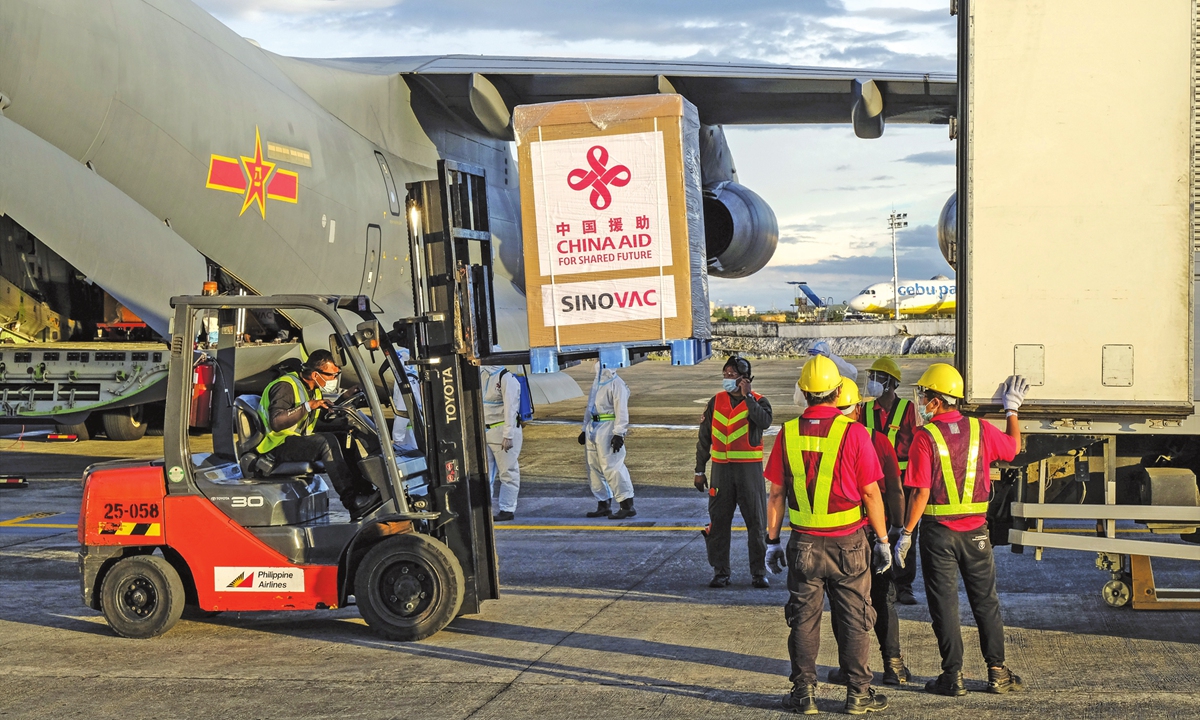
Dr Robert Lawrence Kuhn, chairman of The Kuhn Foundation and recipient of the China Reform Friendship Medal (2018), told the Global Times on March 7 that "to work our way out of this mutually debilitating stand-off will take wisdom from both US and China leadership."
"Anxiety among US scholars is the product of the international positions and policies of the Trump administration combined with international trends, especially the rise of China, but also a resurgent Russia, hostile states of Iran and North Korea, and the broad trends of de-globalization and ethno-nationalism," Kuhn said.
Meanwhile, US geopolitical and diplomatic thought leaders remain confident that the US can play a leadership role, but not a hegemonic role, in maintaining an international order of high standards and in safeguarding principles of freedom, he noted.
Political wisdom is needed urgently for avoiding further exacerbation and escalation, which would only harm both countries and the world as a whole, Kuhn said.
Kuhn suggested that if they have the will Washington and Beijing can do much to move to de-escalate.
"When I give advice, I like to be balanced, even-handed. Some in the US believe wrongly that China must change its political system; this increases tensions and it is not proper. The US should not be in the business of dictating how China runs its internal affairs," he said.
"Some in China feel wrongly that they must control all discourse about China, even beyond China's borders - reacting strongly to every real or perceived criticism also increases tensions. China can have more confidence in its system and accomplishments," Kuhn noted.
"It is natural that when one is attacked, that one attacks back. But sometimes there are cleverer things to do. I have found that China's epic story of eradicating all extreme poverty is the best way to show how China's system is structured and functions, which works to undermine foreign biases. Similarly, China can discuss its internal problems - environmental, economic imbalances, social issues like birth rates and gender, financial debt - it disarms those who think China is always triumphal. Another example is China wrestling with contemporary issues of data privacy and problems of AI, such as displacing employment - the same issues that many countries face," he said.

Ilyas Moussa Dawaleh, Djibouti Minister of Economy and Finance, in charge of Industry, told the Global Times on Friday that "the fact is, Djibouti and Djiboutians are striving to overcome poverty and develop to offer better living conditions to our Djiboutian fellows. A Cold War mind-set is counterproductive toward our aims and desire for better days."
In the Bloomberg article, Djibouti is dubbed as the only nation to host both American and Chinese military bases, is the bellwether of this superpower rivalry in Africa.
Asked if he foresees any possibility that Djibouti is turning into "an arena for rivalry" or a conflict stage due to military bases from the US, Japan, and China, Dawaleh said that "all of them are good friends of Djibouti and all are our valuable guests. And we sincerely encourage them to take advantage of this unique experience of being together and explore ways and means for more cooperation than competition. We are sincerely looking for much more positive outcomes in this unique experience. Trilateral cooperation must be experimented here in Djibouti."
He is optimistic about the outlook for a China-Djibouti partnership in development cooperation.
"We really found positives during the last decade. Even though I expected much more direct investments and job opportunities. We hope we will achieve more success in the future," Dawaleh noted.
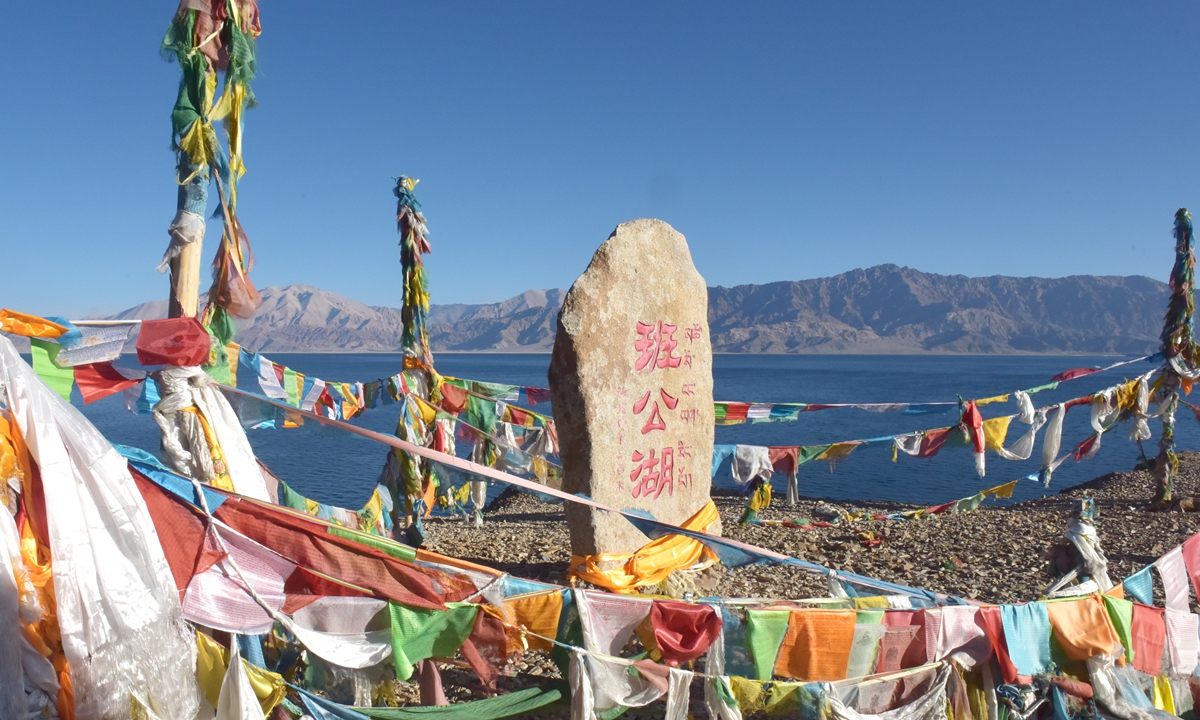
2020 marks the 70th anniversary of the establishment of diplomatic relations between China and India, and India's security, political, and economic antagonism and even anti-China actions have suddenly cooled bilateral relations, the China Institute of International Studies (CIIS)'s newly released Blue Book on International Situation and China's Foreign Affairs analyzed.
The CIIS is the think tank of China's Ministry of Foreign Affairs.
The book analyzed that there are deep domestic and international political roots behind India's adjustment of its China policy.
In the face of the downward trend in China-Indian relations, China has always held a calm and restrained attitude, sustaining a dialogue with India while strictly observing the bottom line, and actively seeking to improve bilateral relations.
The Indian side should meet China halfway, refrain from words and deeds, and jointly create an atmosphere and conditions for a turnaround in the relations between the two countries, the Blue Book suggested.
In her analysis, Sun Ru, a research professor and deputy director of the Institute of World Political Studies, China Institutes of Contemporary International Relations, told the Global Times on Friday that it might be difficult for China and India to get back to previous bilateral relations.
"I'm afraid it will be difficult to return to the previous state. There is also competition among major powers between China and India," she said.
The competition between China and the US is everywhere, and the pivotal countries are distributed all over the world.

Ground crew load packages of the first shipment of Sinovac Biotech coronavirus vaccine onto a truck at the Villamor Airbase in Pasay City, Manila. Photo: VCG
US political wisdomDr Robert Lawrence Kuhn, chairman of The Kuhn Foundation and recipient of the China Reform Friendship Medal (2018), told the Global Times on March 7 that "to work our way out of this mutually debilitating stand-off will take wisdom from both US and China leadership."
"Anxiety among US scholars is the product of the international positions and policies of the Trump administration combined with international trends, especially the rise of China, but also a resurgent Russia, hostile states of Iran and North Korea, and the broad trends of de-globalization and ethno-nationalism," Kuhn said.
Meanwhile, US geopolitical and diplomatic thought leaders remain confident that the US can play a leadership role, but not a hegemonic role, in maintaining an international order of high standards and in safeguarding principles of freedom, he noted.
Political wisdom is needed urgently for avoiding further exacerbation and escalation, which would only harm both countries and the world as a whole, Kuhn said.
Kuhn suggested that if they have the will Washington and Beijing can do much to move to de-escalate.
"When I give advice, I like to be balanced, even-handed. Some in the US believe wrongly that China must change its political system; this increases tensions and it is not proper. The US should not be in the business of dictating how China runs its internal affairs," he said.
"Some in China feel wrongly that they must control all discourse about China, even beyond China's borders - reacting strongly to every real or perceived criticism also increases tensions. China can have more confidence in its system and accomplishments," Kuhn noted.
"It is natural that when one is attacked, that one attacks back. But sometimes there are cleverer things to do. I have found that China's epic story of eradicating all extreme poverty is the best way to show how China's system is structured and functions, which works to undermine foreign biases. Similarly, China can discuss its internal problems - environmental, economic imbalances, social issues like birth rates and gender, financial debt - it disarms those who think China is always triumphal. Another example is China wrestling with contemporary issues of data privacy and problems of AI, such as displacing employment - the same issues that many countries face," he said.

A general view of Djibouti Photo: VCG
Djibouti knows its businessIlyas Moussa Dawaleh, Djibouti Minister of Economy and Finance, in charge of Industry, told the Global Times on Friday that "the fact is, Djibouti and Djiboutians are striving to overcome poverty and develop to offer better living conditions to our Djiboutian fellows. A Cold War mind-set is counterproductive toward our aims and desire for better days."
In the Bloomberg article, Djibouti is dubbed as the only nation to host both American and Chinese military bases, is the bellwether of this superpower rivalry in Africa.
Asked if he foresees any possibility that Djibouti is turning into "an arena for rivalry" or a conflict stage due to military bases from the US, Japan, and China, Dawaleh said that "all of them are good friends of Djibouti and all are our valuable guests. And we sincerely encourage them to take advantage of this unique experience of being together and explore ways and means for more cooperation than competition. We are sincerely looking for much more positive outcomes in this unique experience. Trilateral cooperation must be experimented here in Djibouti."
He is optimistic about the outlook for a China-Djibouti partnership in development cooperation.
"We really found positives during the last decade. Even though I expected much more direct investments and job opportunities. We hope we will achieve more success in the future," Dawaleh noted.

A general view of the shores of Bangong Lake, known as Pangong Lake in India on October 10, 2017 Photo: VCG
Indian competition2020 marks the 70th anniversary of the establishment of diplomatic relations between China and India, and India's security, political, and economic antagonism and even anti-China actions have suddenly cooled bilateral relations, the China Institute of International Studies (CIIS)'s newly released Blue Book on International Situation and China's Foreign Affairs analyzed.
The CIIS is the think tank of China's Ministry of Foreign Affairs.
The book analyzed that there are deep domestic and international political roots behind India's adjustment of its China policy.
In the face of the downward trend in China-Indian relations, China has always held a calm and restrained attitude, sustaining a dialogue with India while strictly observing the bottom line, and actively seeking to improve bilateral relations.
The Indian side should meet China halfway, refrain from words and deeds, and jointly create an atmosphere and conditions for a turnaround in the relations between the two countries, the Blue Book suggested.
In her analysis, Sun Ru, a research professor and deputy director of the Institute of World Political Studies, China Institutes of Contemporary International Relations, told the Global Times on Friday that it might be difficult for China and India to get back to previous bilateral relations.
"I'm afraid it will be difficult to return to the previous state. There is also competition among major powers between China and India," she said.
